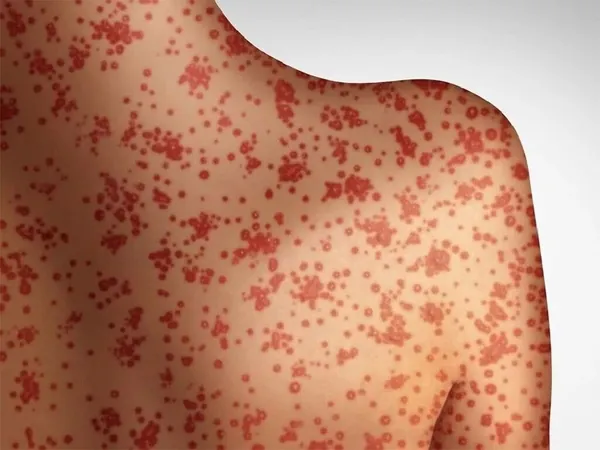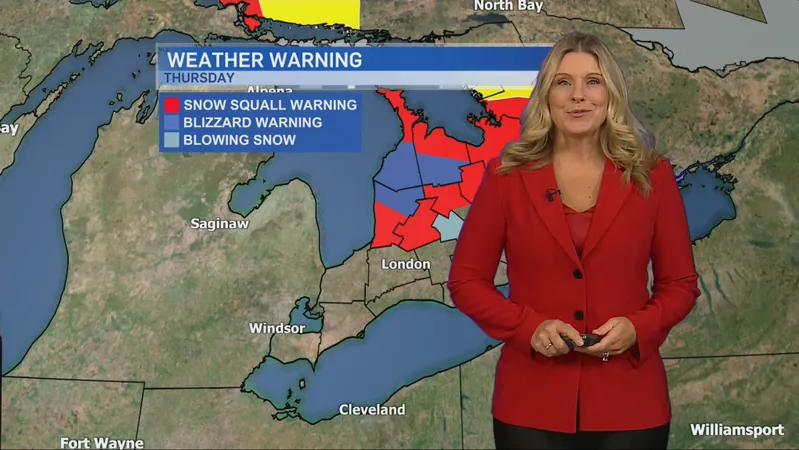
Alarming Measles Outbreak in New Brunswick Spreads to Ontario: What You Need to Know
2024-12-23
Author: Noah
Overview
A concerning measles outbreak that began in New Brunswick has now crossed provincial borders into Ontario, raising alarms among health officials and communities. As of December 18, 2023, data compiled by Ontario’s integrated Public Health Information System indicates that since October 18, the outbreak has led to 37 linked cases - 11 confirmed and 26 probable - spread across three different public health units in Ontario.
The report highlights that a significant number of those affected are children and adolescents, with 28 cases reported among this group, while 9 cases were identified in adults. Disturbingly, nearly all the infected individuals were not vaccinated against measles; only one person had received one dose of the measles-containing vaccine, and another had received two doses. Tragically, one child was hospitalized due to complications from the disease.
Comparison of Reporting
In contrast to the limited information released by New Brunswick health officials, Ontario's report provides a comprehensive breakdown of the cases, detailing the ages of the infected, their immunization statuses, and the various locations where the outbreaks were reported. New Brunswick authorities, however, have only disclosed the total case count and the health zone in which the outbreak was identified, specifically Zone 3, encompassing the Fredericton and Upper River Valley region.
Origin of the Outbreak
Dr. Yves Leger, the acting chief medical health officer of New Brunswick, noted that the outbreak appears to have originated from an individual who returned from international travel and subsequently infected others. In a statement from the mid-November outbreak announcement, the government underscored the extreme contagiousness of measles, describing it as 'one of the most contagious infections known.' The disease is spread through airborne transmission or direct contact with the respiratory secretions of an infected person.
Symptoms and Recommendations
Symptoms of measles can appear 10 to 14 days after exposure and may include fever, cough, red eyes, runny nose, and small white spots inside the mouth. Following these early signs, a red, blotchy rash typically emerges, starting on the face and spreading across the body. Health authorities advise anyone who exhibits these symptoms to isolate themselves and reach out to Tele-Care 811, rather than visiting emergency departments or clinics in person, to prevent further transmission.
Public Health Response
Public Health officials are on high alert, endeavoring to trace all contacts of confirmed cases and providing guidance to mitigate the risk of additional outbreaks. Dr. Leger expressed optimism about the situation, stating, 'We can stop the transmission from occurring. I’m certainly quite hopeful that we will get ahead of this.'
Importance of Vaccination
As the outbreak continues to unfold, citizens are encouraged to be vigilant and ensure their vaccinations are up to date, particularly young children and those who have yet to receive the measles, mumps, and rubella (MMR) vaccine. Public health experts emphasize the importance of community immunity in preventing the spread of highly contagious diseases like measles.
Stay informed and protected—vaccination is your best defense against measles!









 Brasil (PT)
Brasil (PT)
 Canada (EN)
Canada (EN)
 Chile (ES)
Chile (ES)
 España (ES)
España (ES)
 France (FR)
France (FR)
 Hong Kong (EN)
Hong Kong (EN)
 Italia (IT)
Italia (IT)
 日本 (JA)
日本 (JA)
 Magyarország (HU)
Magyarország (HU)
 Norge (NO)
Norge (NO)
 Polska (PL)
Polska (PL)
 Schweiz (DE)
Schweiz (DE)
 Singapore (EN)
Singapore (EN)
 Sverige (SV)
Sverige (SV)
 Suomi (FI)
Suomi (FI)
 Türkiye (TR)
Türkiye (TR)